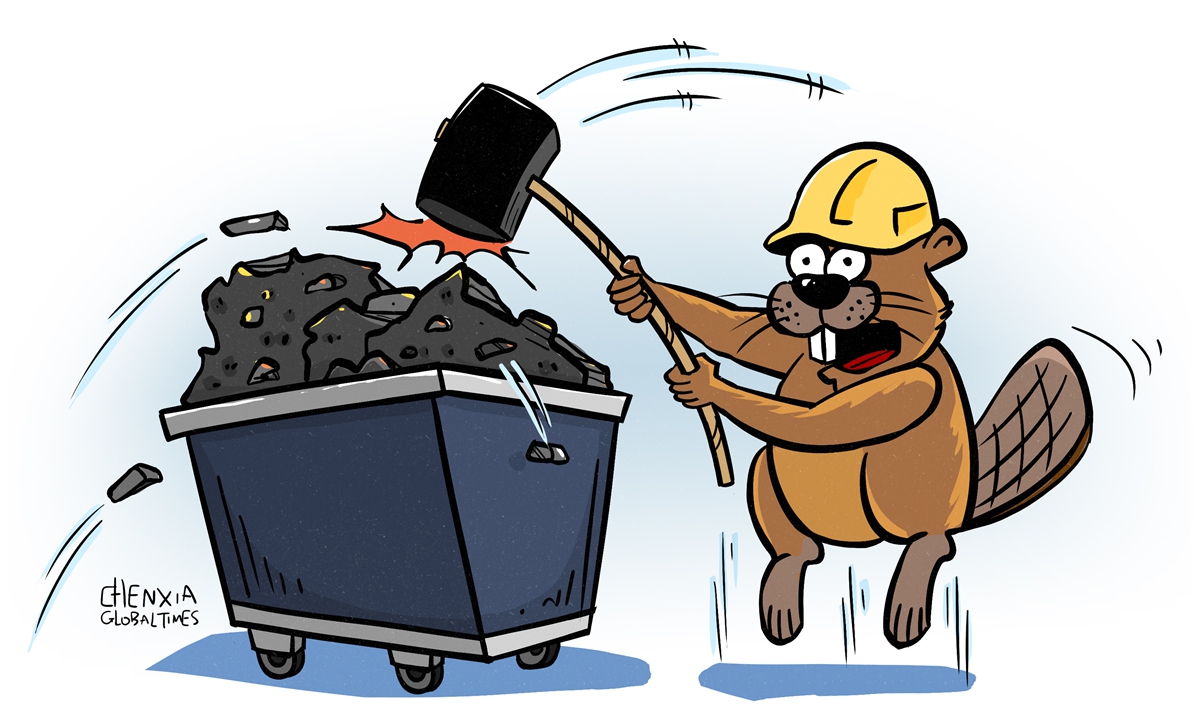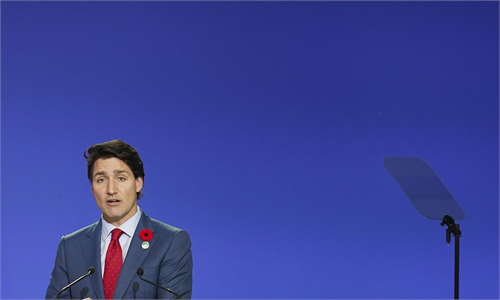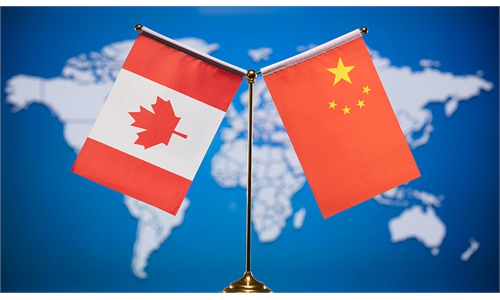
Illustration: Chen Xia/Global Times
Lithium Chile, one of three Canadian miners hit by Ottawa's decision to block Chinese investment in some critical minerals, said it regrets losing an "incredible shareholder with a valued expertise in lithium brine," Canada's Financial Post reported, noting that Chinese-owned Chengze Lithium International has sold its stake in Lithium Chile.The parent company of Chengze confirmed over the weekend that it has sold its shares in Lithium Chile to Gator Capital, a Canada-based firm that mainly focuses on asset management.
Citing national security, Canada's federal government in November ordered three Chinese firms, Chengze included, to divest their stakes in three small lithium miners based in Canada. Now, it seems the Canadian government has succeeded in forcing Chengze to divest its stakes, but what result does Ottawa achieve? The most immediate consequence is Canadian lithium miner's "regret."
The Canadian government generalizes the concept of so-called national security and artificially sets up obstacles to normal economic and trade cooperation between Chinese and Canadian enterprises. If Canadian firms have any "regret" and worry about their future development, Ottawa is entirely to blame. Its hostility against Chinese mining companies is 100 percent responsible for any disruptions to the lithium industry in Canada.
With the rapid development of the new energy industry and lithium battery business sector, the market demand for lithium carbonate has exploded, and to some extent, it seems understandable for Ottawa to be so eager to expand the nation's strategic footprint in the market. However, Canadian politicians should be reminded they should not get too arrogant, or else they will become blind to the fact that Canada does not have many advantages, such as rich resources, strong domestic demand, and a complete industrial chain to develop its lithium sector.
The salt flats of the so-called lithium triangle - made up of Argentina, Chile, and Bolivia - contain roughly half the world's known lithium, Foreign Policy magazine reported. In 2021, Argentina and Chile reportedly produced about 30 percent of the world's lithium, while Canada had only small share in the industry. According to the Financial Post report, Lithium Chile does not own any Canadian assets. The Canada-based company reportedly runs its properties through South American subsidiaries in Chile and Argentina and is currently developing them into producing mines.
Currently, as global automakers race to a clean-energy future, investors pour billions into the lithium battery business sector and it is clear that miners in Canada want to seize the opportunity to get a piece of the cake. However, Ottawa's unreasonable suppression of Chinese companies has cut Canadian lithium miners' important financing channels and impacted Canada's lithium industry. The suppression's impact on Chinese mining companies will be very limited, because of China's diversified sources of lithium supplies and Canada's small share in the industry. However, its impact on the Canadian side will be significant.
Even though Ottawa can force some Chinese firms to divest their stakes in Canada-based mining companies, Canadian politicians are unable to obstruct mutually beneficial cooperation among Chinese mining companies and South American countries. China is one of the biggest producers of many critical minerals, and, undoubtedly, Chinese enterprises have rich experience in mining and processing industries and some of them have sufficient fund for overseas investment. There is a high possibility that Canadian enterprises will face stronger competition from Chinese competitors if they are prohibited by Ottawa from cooperating in a third country.
An additional issue is that China takes up a big share of the world's capacity for processing raw lithium products into battery-grade chemicals. According to the South China Morning Post, Chinese electric vehicle (EV) battery makers dominated the global market in 2022, with six companies featuring among the world's top 10 players and accounting for a 60.5 percent share amid a doubling of EV sales on the Chinese mainland.
China is one of the world's largest lithium battery consumer markets. Ottawa's moves toward cracking down on cooperation between Chinese and Canadian Lithium companies are ridiculous and stupid. The Canadian government should stop unreasonable suppression of Chinese companies and provide a fair, non-discriminatory business environment for Chinese mining companies.
The author is a reporter with the Global Times. bizopinion@globaltimes.com.cn



